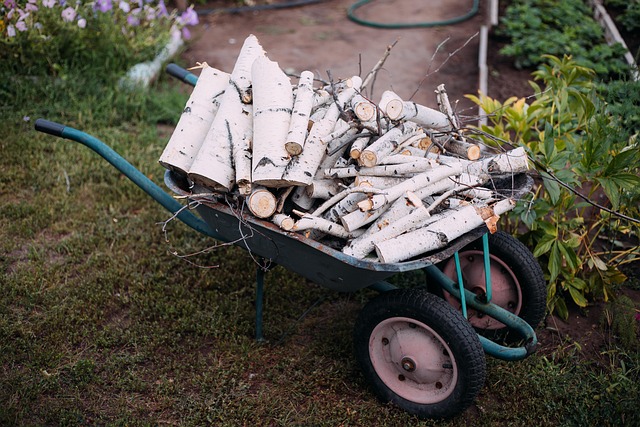Homeowners can reduce organic waste sent to landfills and cut methane emissions by engaging in Yard Waste Removal and Recycling. Composting or recycling leaves and grass clippings creates valuable resources like mulch, while dedicated programs and collection services make eco-friendly practices more accessible. This approach benefits the environment, enriches soil for healthier plants, reduces synthetic fertilizer needs, fosters a circular economy, and offers cost-effective landscape maintenance solutions.
Tired of bulky yard waste piling up? Efficient Yard Waste Removal and Recycling is key to a greener, more sustainable lawn care routine. This guide explores effective strategies for managing debris while highlighting the significant benefits of recycling lawn debris. From understanding local removal regulations to discovering eco-friendly disposal methods, we’ll show you how to transform lawn clippings and trimmings into valuable resources, reducing waste and fostering a healthier environment.
- Understanding Yard Waste Removal and Recycling
- Effective Debris Disposal Strategies for Your Lawn
- The Benefits of Recycling Lawn Debris
Understanding Yard Waste Removal and Recycling

Many homeowners often overlook the importance of proper Yard Waste Removal and Recycling. It’s more than just clearing away lawn clippings; it involves responsible management of organic materials to benefit both your local environment and community. By understanding the process, you can contribute to a sustainable ecosystem right in your backyard.
Recycling yard waste reduces the amount sent to landfills, where organic material decomposes and releases methane, a potent greenhouse gas. Instead, consider composting or recycling leaves, grass clippings, and other plant matter. These practices not only divert waste but also create valuable resources for gardening and landscaping. Many municipalities offer dedicated programs for Yard Waste Removal and Recycling, making it easier than ever to adopt eco-friendly habits in your yard.
Effective Debris Disposal Strategies for Your Lawn

Maintaining a lush lawn comes with its share of challenges, one being the effective disposal of debris. However, implementing proper strategies can make this task hassle-free and environmentally beneficial. One of the most eco-friendly approaches is yard waste removal and recycling. Instead of sending clippings and leaves to landfills, consider composting them at home or utilizing local recycling programs that turn yard waste into valuable resources like mulch or biofuel. This not only reduces waste but also enriches your lawn’s soil over time.
For those with limited space or time, there are numerous convenient options available. Many communities offer dedicated collection services for yard waste removal, ensuring timely and efficient disposal of grass clippings, hedge trimmings, and other garden debris. Additionally, recycling centers often accept organic materials, further promoting sustainable practices. Embracing these strategies not only keeps your lawn healthy but also contributes to a greener environment.
The Benefits of Recycling Lawn Debris

Recycling lawn debris offers a multitude of benefits beyond simple convenience. By converting grass clippings, leaves, and other organic material into compost or mulch, homeowners can significantly reduce their environmental impact. This practice not only diminishes the amount of yard waste ending up in landfills but also enriches soil structure, promoting healthier plants and reducing the need for synthetic fertilizers.
Moreover, recycling lawn debris fosters a circular economy by turning common yard waste into valuable resources. Compost enhances garden fertility, while mulch acts as a natural weed inhibitor, saving time and money on landscaping. This sustainable approach to yard waste removal not only benefits the environment but also provides practical solutions for homeowners looking to maintain lush, vibrant landscapes with minimal effort and expense.
In conclusion, implementing effective yard waste removal and recycling strategies not only benefits the environment but also makes lawn debris disposal a simple and efficient task. By understanding the importance of proper waste management and exploring various disposal methods, homeowners can contribute to a greener, more sustainable future while keeping their outdoor spaces neat and tidy. Embrace these practices for a healthier planet and beautifully maintained lawns.






